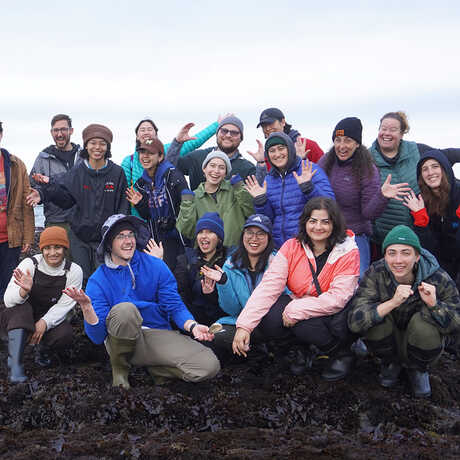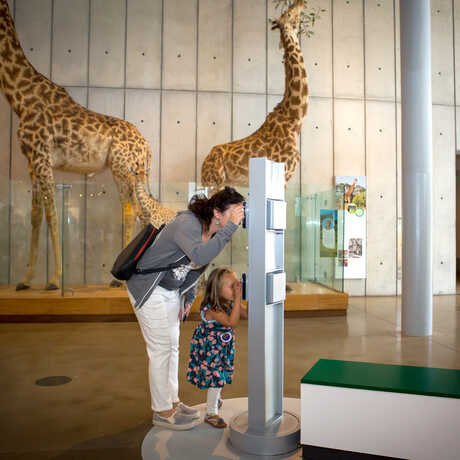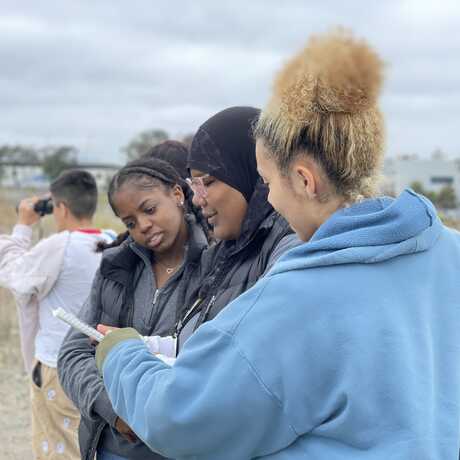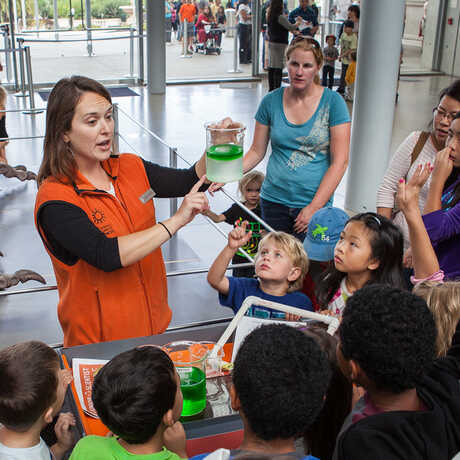The mission of the Academy's Institute for Biodiversity Science and Sustainability (IBSS) is to gather new knowledge about life's diversity and the process of evolution—and to rapidly apply that understanding to our efforts to regenerate life on Earth.
In the summer of 2020, a group of IBSS scientists drafted this statement addressing racism in modern science and outlined individual and collective actions to advance equity within IBSS and to promote diversity, equity, and inclusion in their fields:
"Science is a racist institution to which all scientists belong, and in which we all participate. There are deep legacies of implicit and explicit racism rooted in the foundations of modern science, including the exploitation of Indigenous and foreign peoples during exploration and the making of biological collections, the forced participation of enslaved people in scientific research, the distortion of scientific discoveries and theories in the formulation and justification of racist theories of humanity, and the ongoing denial of a professional environment that is equitable and supportive to non-white scientists in the United States. In the opening decades of the 21st century, more than 150 years after the official end of slavery in the United States, only 1% of PhDs in Ecology and Evolution are awarded to Black Americans. This is wrong. We, the scientists of the California Academy of Sciences, hereby declare that we will no longer participate in a racist discipline. We acknowledge the role of racism in the history of our own institution, the biases and hurtful actions in our present-day workplace, and commit ourselves to anti-racist actions and policies as the foundation of a future that is equitable, and that truly reflects our values and the demography of both our American society and the scientific community.
Every scientific institution in the United States bears the legacy of our country’s racism, and the California Academy of Sciences is no exception. It is impossible to conceive of our past colleagues, expeditions and research as being free of racist actions and beliefs. Our current body is more diverse than it has ever been in the 167-year history of the institution, and yet still adequately reflects neither the racial diversity of American society, nor the diversity of persons who aspire and train to become professional scientists. All of us have either witnessed, heard, been subjected to, or perpetrated racist statements and actions. We have not been honest enough in the acknowledgment of our past, nor our practices in the present. And we have not been as effective as we both wish and are capable of, in creating a more equitable and diverse future for science. Science thrives on ideas, and diversity breeds ideas. Each scientist brings their background and experiences to the scientific table, and to meet the enormous challenges currently facing our society, science must benefit, in tangible and material ways, from the true diversity of the world in which it operates
If you share our vision of a truly equal and anti-racist institution of science, then join us. If you are sick and tired of belonging to something that denies you, or are exhausted by the often unknowing or unintentional perpetuation of systemic racism, then join us. We are building something, and we need you for a new institution of science. We will fight together until everyone who wants to be in the room feels welcome, that they belong there, and agrees the work is done. We will redefine who does science and what science does—the institution of science is by the people and for the people, not one of privilege."
The preceding statement is specific to actions we will take within the Institute for Biodiversity Science and Sustainability; however, we expect the Academy to reflect these values and goals across all departments and partnerships.
Commitments and progress
We have begun our work with the following 14 commitments and will share monthly updates to keep our community informed and ourselves on track.
Items 1-6 are personal commitments for individual scientists and members of IBSS, while items 7-14 are collective commitments for the division at large.
- Demand that new science and leadership hires, as well as new Academy Fellows nominees, result in an Academy workforce that is reflective of human diversity. Demand that hiring offers are equitable and that the Academy build tools and programming to ensure new hires feel welcome and supported.
- Only participate in panels, advisory boards, symposia, etc., that have diverse rosters. Decline invitations to participate in such activities if our participation would decrease diversity.
- Seek Black, Brown, and Indigenous collaborators for the co-creation of research and education in a way that leverages our strengths for their direct benefit in addition to benefits to the scientific community and society.
- Recognize, value, and respect local expertise in the communities in California and around the world in which we work. Conduct our research through partnerships that are genuinely collaborative and mutually beneficial. Share specimens, data and expertise to inform management and policies that support thriving human communities and ecosystems. Work together to build scientific leadership.
- Advocate for reduction of ethnic stratification in hiring practices throughout the Academy to ensure diversity, representation, and equity across the organization.
- Lead by example. Demand that our external partners and collaborators uphold our ideals of active anti-racism, and refuse to work with them if they cannot commit to this.
Goal:
Create a new framework of scientific success metrics and performance evaluation that incorporates diverse perspectives, includes meaningful and equitable community partnerships, and promotes effective mentorship. Ensure diversity contributions of staff are integral elements of annual review and advancement process.
Progress:
December 2022
- New framework implemented for goal setting and performance evaluation of IBSS scientific staff
January 2022
-
New framework published in peer-reviewed journal
July 2021
- New framework is being piloted in IBSS
February 2021
- Circulated framework for IBSS-wide review
December 2020
- Drafted framework for scientific success metrics and performance evaluation for all scientific staff in IBSS
Goal:
Require anti-racist training for all scientists, research staff, students, volunteers, and expedition staff, as well as visiting scientists on-site for 30 days or more within a 12-month period. Establish a code of conduct for all visiting scientists regardless of visit duration.
Progress:
Next steps:
-
Post current list of Associates and Code of Conduct on IBSS website
-
Draft Code of Conduct for IBSS expedition participants
December 2022:
- Code of Conduct for Research Associates implemented for all current and future appointments in IBSS
April 2022:
-
IBSS staff prepared a workshop with input from The Mosaic Collaborative on racism and colonialism in the Academy's collections that was presented to All Staff and the Board
-
Shared Code of Conduct for IBSS Research Associates with IBSS Chief for approval by Legal
July 2021:
- Code of Conduct for IBSS visitors is in use
February 2021:
- Shared Code of Conduct with IBSS Chief for approval by HR and Legal
December 2020:
- Drafted Code of Conduct for visiting scientists
Goal:
Acknowledge and address manifestations of racism in collection items, including harmful language, issues of provenance, and possible repatriations. Remove statues, portraits, and other commemorations of racist scientists that are publicly displayed.
Progress:
Next steps:
- Update collections webpages with deaccessioning policy information, disclaimers, and contextual information
January 2021:
- Drafted an updated deaccessioning policy and process
- Drafted a contextual disclaimer for our collections regarding the potential to encounter historic harmful or racist language
- Developed a plan for identifying and addressing racist commemorations in the future
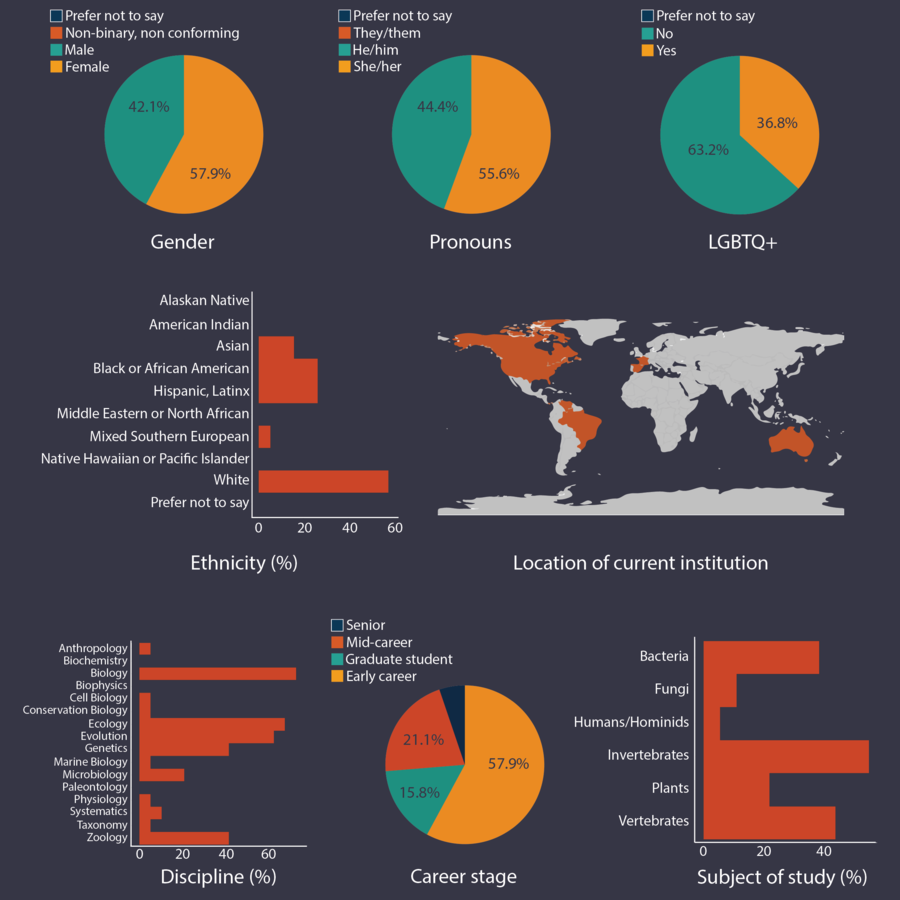
Goal:
Actively diversify the roster of speakers invited to seminar series and keynotes and solicit funds to support doing this.
Progress:
Next steps:
- Continue recruiting diverse speakers for virtual seminars; share demographics annually
- Identify sources of funding to recruit speakers for when we return to in-person seminar format
December 2020:
- Developed survey to track demographics of seminar speakers
Goal:
Seek permanent funding to support scholars from developing nations and expand the Lakeside Program.
Progress:
Next steps:
- Pursue new funding opportunities with Development team
July 2022:
- Webpage for Lakeside Fellows featuring recent alumni and projects published
December 2020:
- Learned more about current donors to Lakeside Fund
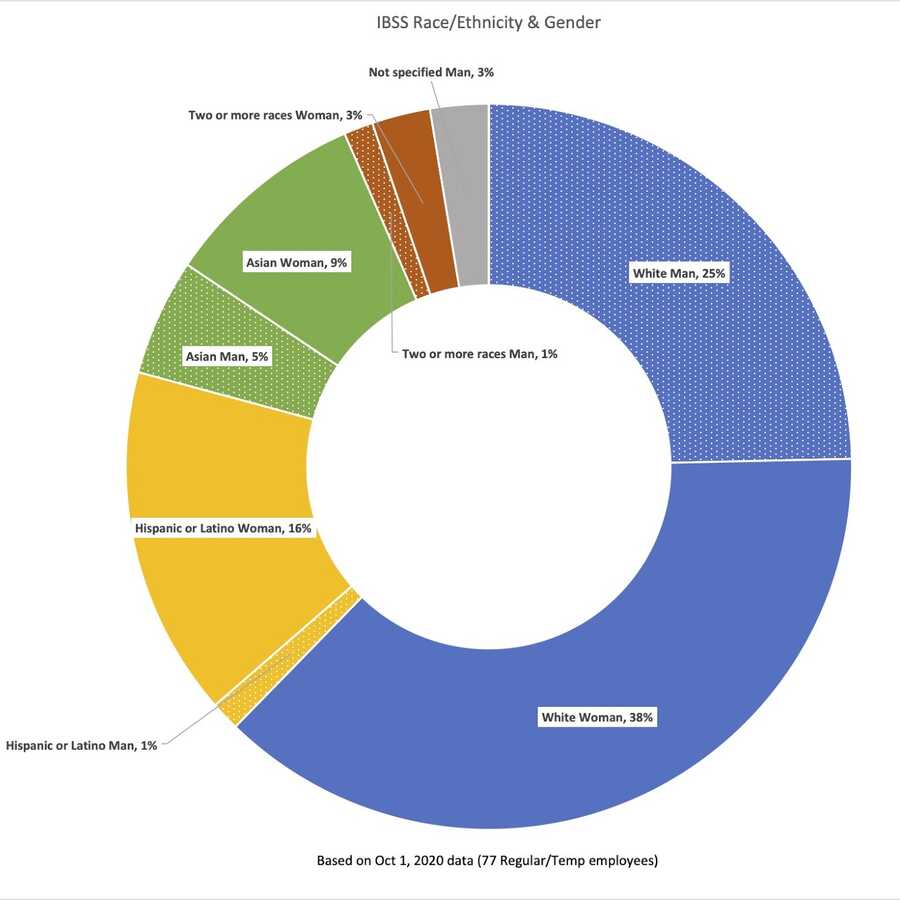
Goal:
Measure and report on IBSS staff and Fellows diversity and make these reports easily accessible on our website.
Progress:
Next steps:
- Summarize demographic data for Fellows and share on website
April 2021:
- Survey sent to Academy Fellows
- Shared IBSS staff demographic data on website
December 2020:
- Developed survey to track demographics of IBSS Fellows
Goal:
At least double our paid mentorship programs with targeted recruitment efforts among underrepresented groups in STEM. Commit to leveraging our personal networks to ensure career opportunities are available to our mentees when they leave.
Progress:
Next steps:
- Identify additional funding opportunities
February 2021:
- Academy LinkedIn profile modified to include alumni and provide networking opportunities for IBSS interns and students
- Ran a targeted campaign to recruit Bay Area community college students for the 2021 Summer Systematics Institute
- Funded 25 professional society memberships to 24 students and early career entomologists through the EntoPOC inititative.
December 2020:
- 4 proposals submitted to increase funding and support local community college students
- Funded 343 professional society memberships to 171 students and early career entomologists through the EntoPOC inititative.
Goal:
Publicly acknowledge that the Academy is situated on land that is the unceded, traditional territory of the Ohlone people and has been tended and cared for by them since time immemorial.
Progress:
Next steps:
- Identify the Academy's existing relationships and partnerships with local tribes
- Identify funding to support Indigenous partners as part of the Thriving California initiative
- Continue collaborating with internal departments to craft their own team-specific land acknowledgments and identify opportunities to support Indigenous peoples
March 2021
- Presented Statement of Intent to Academy senior leadership, received go-ahead to finalize and implement action plan
- Presented Statement of Intent to several internal teams to kick off the development of a land acknowledgment practice at Academy events
December 2020
- Sought staff feedback for Land Acknowledgement & Indigenous Solidarity committee's draft Statement of Intent
Original signatories
View a list of Academy staff who added their signature to the Statement and made a personal commitment to this work.
- Rayna C. Bell
- Lauren Esposito
- Rebecca F. Johnson
- Rebekah Kim
- Rebecca Albright
- Marie Angel
- Roxanne M.W. Banker
- Shannon Bennett
- David Bettman
- Pim Bongaerts
- Lynn Bonomo
- Henry E Brown
- Meg Burke
- David Catania
- Sarah Crews
- Rosielyn De Guzman
- Robert C. Drewes
- John Dumbacher
- Laura Eklund
- Flavia Esteves
- Brian L. Fisher
- Moe Flannery
- Jon Fong
- Taryn Foster
- Christine Garcia
- Terrence M. Gosliner
- Alison Gould
- Denise Greig
- Chris Grinter
- Charles E. Griswold
- Dr. Charles E. Griswold
- Alejandra Hernandez
- Mary Holt
- Tomio Iwamoto
- Durrell D. Kapan
- David H. Kavanaugh
- Elizabeth Kools
- Athena Lam
- Kelly Larkin
- Alan E. Leviton
- Johanna Loacker
- Manuel Lujan
- Kelly Markello
- John E. McCosker
- Annie Miller
- Rich Mooi
- Nathalie S. Nagalingum
- Lisa Paggeot
- Lindsay Palaima
- Susan Pemberton
- Tyler Phelps
- Christina Piotrowski
- Dr. Giovanni Rapacciuolo
- Luiz A. Rocha
- Peter D. Roopnarine
- Greg Rotter
- Joe Russack
- Lauren Scheinberg
- Brian Simison
- Dimitri Smirnoff
- Panpim Thongsripong
- Michelle Trautwein
- Cheryl Tripathi
- Matthew Van Dam
- Martha Velez
- Sean Vidal Edgerton
- Gary C. Williams
- Aya Yamamoto
- Alison N. Young
Interested in learning more about anti-racism in science? Get started with this list of articles, books, and resources compiled by IBSS staff.
